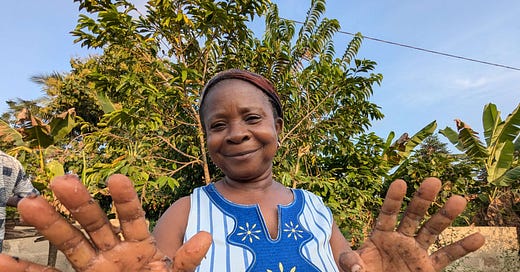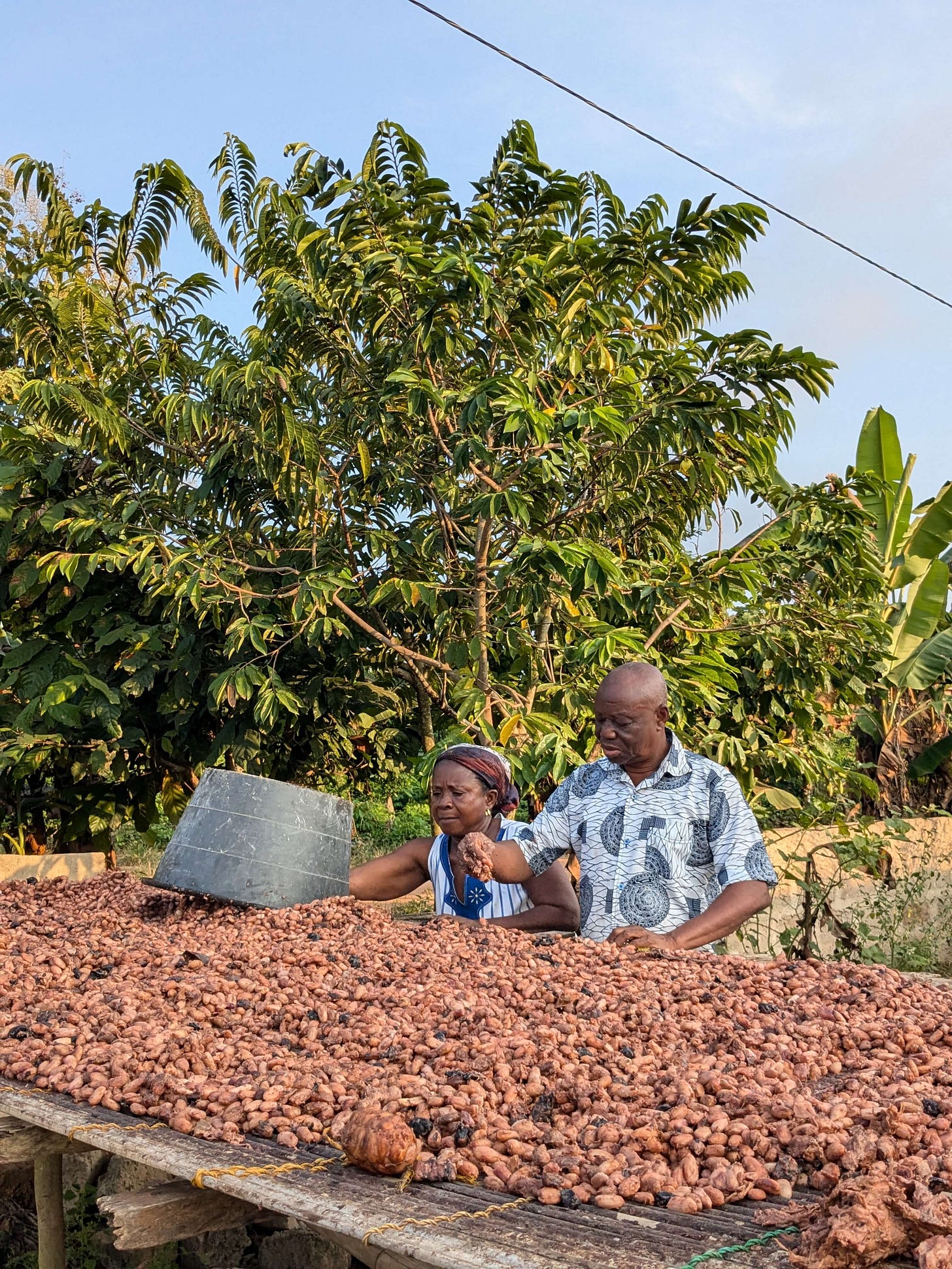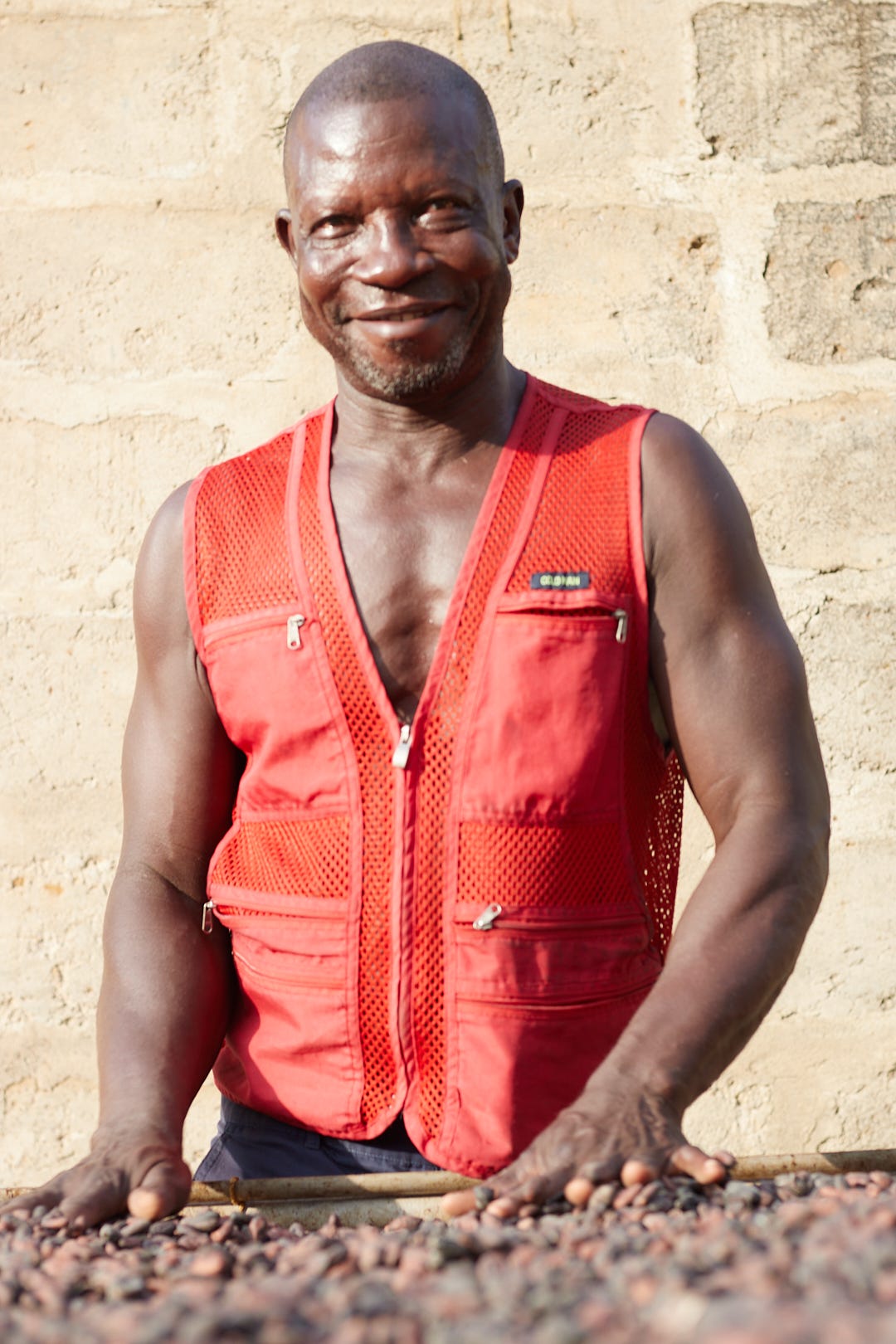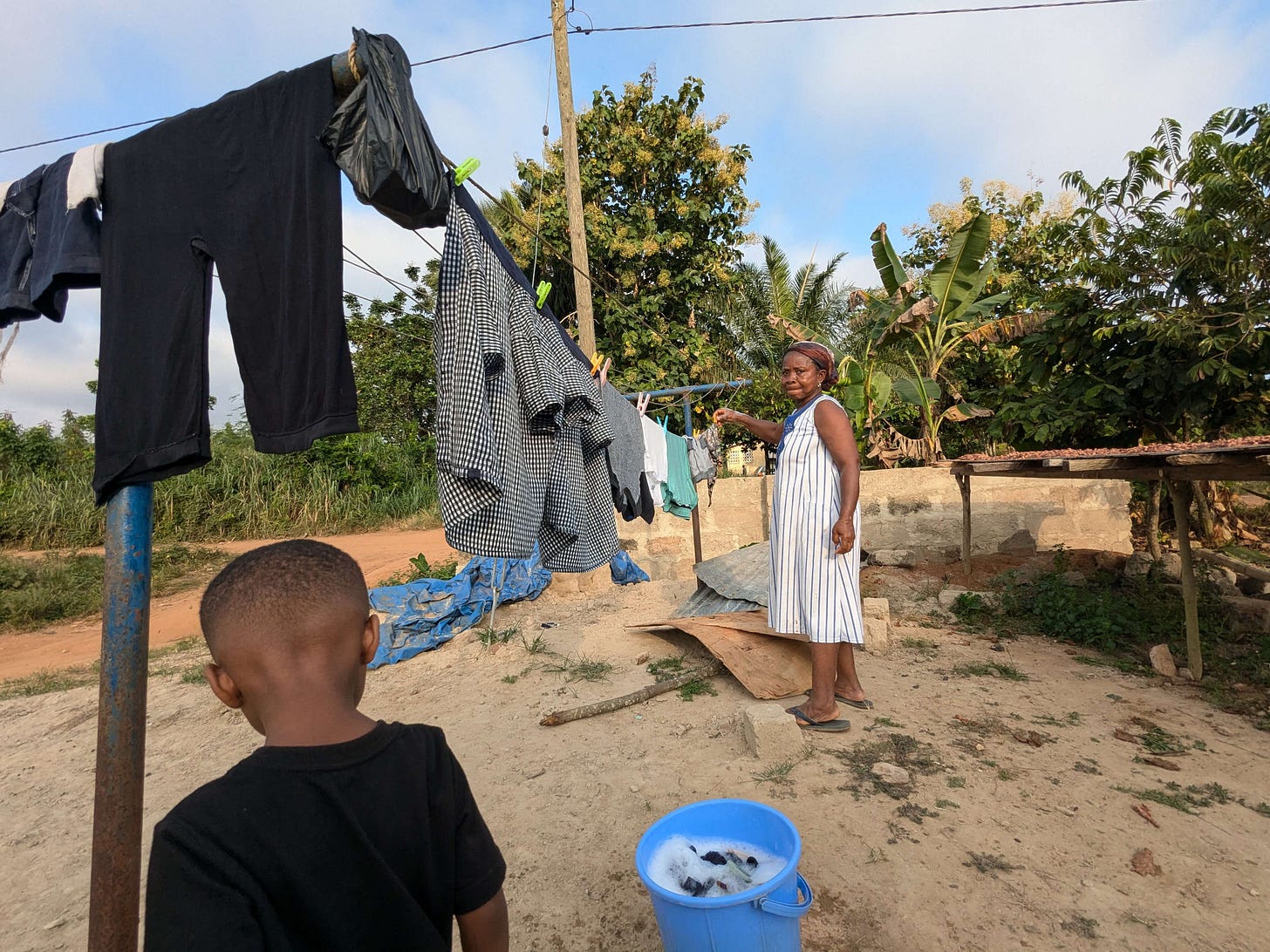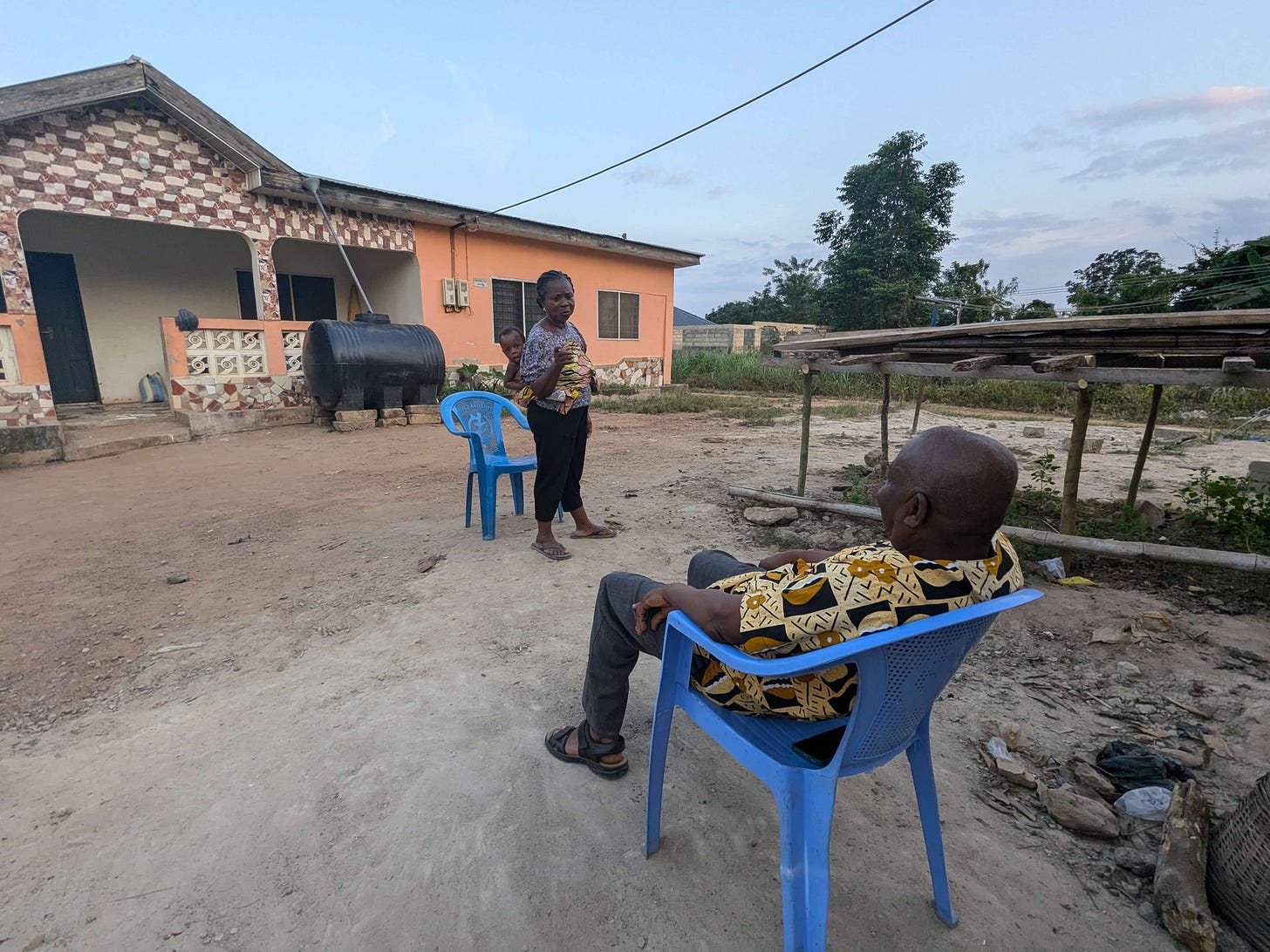‘Can you tell us some of the stories you’ve discovered?’
The faces on the call were exchange students at the Vienna University of Economics and Business. They were interviewing me about Ghana’s cocoa industry.
The trio - two American and German ladies, and a Polish gentleman - had posed several policy-related questions about the experiences of cocoa farmers in Ghana. I’d given my on-the-ground observations and reflections. But now, they wanted to meet some of my cocoa farmers. And that excited me.
So I shared my screen and, among other stories, told them about Mama Theresa, my next-door neighbor:
Mama Theresa
Farming was an unknown world to Mama Theresa. In her own words, ‘I couldn’t tell the difference between food crops and weeds.’
But, once upon a time, she and her husband Philip became desperate.
Their twin boys had begun Senior High School, which meant higher school fees and extra fees for boarding. However, Theresa’s palm oil business and Philip’s TV-Radio repair shop didn’t bring enough money.
Philip, who was raised by his cocoa-farmer uncle, decided to start a farm to earn extra money. Initially starting with palm, he settled on cocoa farming.
Theresa, with no farming skills, was determined to support her husband. Little by little, she got used to walking in the thick bushes of the tropical rainforest. She learned to tell food crops from weeds. And she mastered the skills of harvesting cocoa, extracting the beans from the pods, sorting out the bad ones, fermenting the beans, and overseeing its drying process until it was ready for sale.
Theresa brought something else that made farming a memorable experience. When they hired laborers to weed, she would take her cookware and some foodstuff to the farm. As the laborers worked, she prepared a delicious meal for them.
Today, thanks to the extra income from cocoa farming, all their children have had tertiary education. Theresa and Philip still live in Asamankese with one of their grandchildren. And they still grow cocoa to feed the $150billion chocolate industry.
I invited my audience to share with me their initial thoughts.
The German lady said she had always perceived cocoa farmers as ‘miserable people’ because of how the media painted presented them. The Polish gentleman also said something like this: ‘Often, when we see chocolate, we only think of a brand. But these stories show us that there are actual people like Theresa behind every chocolate bar.’
Hearing their reactions reminded me of how little I, too, had considered the lives of cocoa farmers—until an unexpected journey opened my eyes.
A familiar new world
I grew up among cocoa farmers. As a little boy I saw them grow, harvest, and sell cocoa. I schooled with their children, even sat with some in the classroom.
But the world of these men and women - the unique experiences they lived because of this global supply chain - was invisible to me. Until September 2020.
I became a field research assistant to Dr. Kristy Leissle - cocoa-chocolate scholar and author of Cocoa.
We traveled for one week interviewing groups of farmers in remote villages in the Western North Region. Most of Ghana’s cocoa comes from here. As I interpreted her interview questions into Twi for and the farmers’ responses into English, I found myself suddenly immersed in the lives of many cocoa farmers.
For the very first time, I was hearing how growing cocoa affected them, and how they affected cocoa. I felt the danger a disease outbreak meant to a cocoa-growing household. And I also heard how far men and women had traveled across the country to make chocolate possible.
I did more field trips with Dr. Leissle and listened to many more stories. This deepened my admiration for cocoa farmers. But when I began following industry discussions, something was off.
Anytime cocoa farmers were invoked in an industry discussion, certain vocabulary tagged along: poverty, child labor, deforestation, even slavery! Video documentaries and news items often emphasized how cocoa-farmer poverty resulted in child labor and deforestation.
These portrayals felt disconnected from the vibrant, complex farmers I’d met. They were reductive, even dehumanizing, and I wanted something better.
Towards a nuanced representation
I wanted to see stories of the wise, hardworking, funny, resilient, multitalented cocoa farmers around me. I wanted to read about the sacrifices cocoa farmers make to give their children a brighter future. And I wanted the world to hear about the many ways people became cocoa farmers.
But this was hard to find.
The itch to see more interesting stories eventually led me to start African Cocoa Stories - a story repository that explores the day-to-day experiences of the people in cocoa-producing regions across Africa.
My goal has been to help chocolate consumers, researchers, and policy makers connect to the cultural realities of cocoa farmers. Not everyone will have the chance to visit a cocoa-farming community. But through writing and visual storytelling we can bring chocolate lovers closer to the true experiences of those who make chocolate possible.
Through stories, we can give voice to those whose labor sustains a $150 billion industry—and remind the world that behind every chocolate bar lies a human story.

